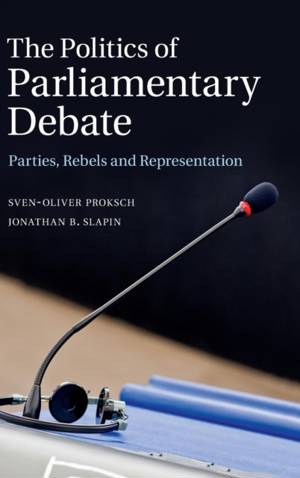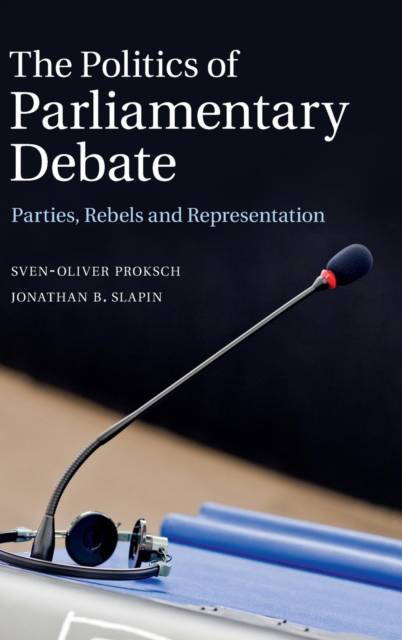
Door een staking bij bpost kan je online bestelling op dit moment iets langer onderweg zijn dan voorzien. Dringend iets nodig? Onze winkels ontvangen jou met open armen!
- Afhalen na 1 uur in een winkel met voorraad
- Gratis thuislevering in België vanaf € 30
- Ruim aanbod met 7 miljoen producten
Door een staking bij bpost kan je online bestelling op dit moment iets langer onderweg zijn dan voorzien. Dringend iets nodig? Onze winkels ontvangen jou met open armen!
- Afhalen na 1 uur in een winkel met voorraad
- Gratis thuislevering in België vanaf € 30
- Ruim aanbod met 7 miljoen producten
Zoeken
The Politics of Parliamentary Debate
Parties, Rebels and Representation
Sven-Oliver Proksch, Jonathan B Slapin
Hardcover | Engels
€ 172,95
+ 345 punten
Uitvoering
Omschrijving
Parliamentary debate is a fundamental aspect of democratic law-making. While law makers everywhere seek to express their views in parliament, there are large discrepancies in who has access to the floor across political systems. This book explains how parties and their members of parliament (MPs) structure parliamentary debate. Parties may actively seek to prevent some members from taking the floor while promoting opportunities for others. In doing so, they attempt to control the message that their partisans convey in parliament. The authors provide a theoretical model to explain the design of procedural rules in parliament, how the party leadership interacts with rebel backbenchers, and how MPs represent voters. The book explores political institutions, intra-party politics, electoral politics and legislative behavior. It develops and tests a new theory of parliamentary debate, using data from the UK, Germany, New Zealand and the European Parliament.
Specificaties
Betrokkenen
- Auteur(s):
- Uitgeverij:
Inhoud
- Aantal bladzijden:
- 224
- Taal:
- Engels
Eigenschappen
- Productcode (EAN):
- 9781107072763
- Verschijningsdatum:
- 15/12/2014
- Uitvoering:
- Hardcover
- Formaat:
- Genaaid
- Afmetingen:
- 155 mm x 239 mm
- Gewicht:
- 453 g

Alleen bij Standaard Boekhandel
+ 345 punten op je klantenkaart van Standaard Boekhandel
Beoordelingen
We publiceren alleen reviews die voldoen aan de voorwaarden voor reviews. Bekijk onze voorwaarden voor reviews.











